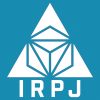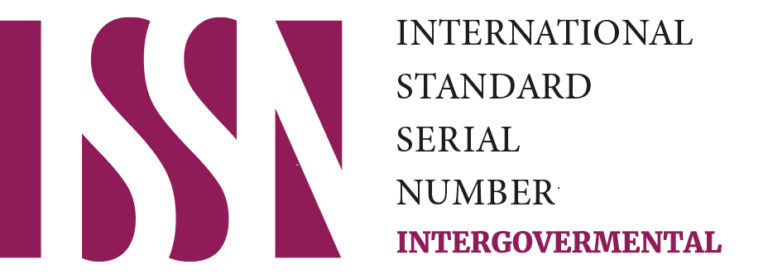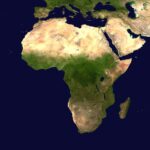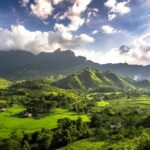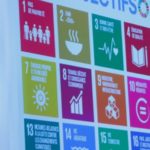ABSTRACT
The paper explored the role of states and non-state actor in resolving the political impasse after the fall of the the 22 years dictatorial regime of Yahya Jammeh as a result of the 2016 presidential elections. The election of a new government led by Adama Barrow in December 2016 was the first democratic transition of power since The Gambia attained Independence in 1965. The paper illustrated the joint efforts of oppositions parties, Civil Society Organizations, individual efforts from the private and public sectors, the United Nation bodies notabily the United Nations Office of West Africa and the Sahel (UNOWAS), NGOs and other actors in ensuring peaceful transition to a democratic rule.
INTRODUCTION
Since attaining Independence in 1965, presidential elections are typically held every five years until 22nd July 1994, when the military took power through a coup. A transitional ruling council was established, which lasted for two years. The first election under the new constitution after the coup was held in 1996, and the coup leader turn politician Yahya Jammeh won the election with 55.77% of the total votes cast. In 2001, he took 52.84% of the total votes cast.[1] The main opposition party United Democratic Party (UDP), has been the leading contender against Jammeh. Due to Jammeh’s dwindling support, as seen in the 2001 elections, he revised the constitution that changed the voting system for presidential elections from absolute majority to the first-past-the-post syste.[2] In addition, the term limit was removed from the constitution coupled with the introduction of several draconian laws, including new election laws and curtailing freedom of assembly to subdue political opponents. The constitution was adulterated to suit his plans to be president for life. Jammeh won all subsequent elections before December 2016 with a landslide victory giving no hope to unseat him through elections marred by frauds, violation of human rights, and bad electoral laws. Due to gross human right violation, several coups were attempted by the military without success.
In July 2016, Jammeh imprisoned the Gambia Opposition Leader Ousainou Darboe and other UDP party executives for peacefully demanding the release of Solo Sandeng and other activists who took to the streets in April 2016 demanding electoral law reforms.[3] Although Solo Sandeng lost his life and most UDP executives were jailed, the Interparty Committee, Independent Electoral Commission (IEC), and the government agreed to count ballots on the spot to reduce election fraud.[4] The opposition, left with no option to unseat Jammeh, decided to form a grand coalition except GDC, a newly formed political party led by Mama Kanteh. He was once a serving member of parliament in Jammeh’s APRC party. The “Coalition for Change 2016”, headed by the relatively unknown Adama Barrow, gave some Gambians hope that this time around, there could be an upset at the ballot box after four straight electoral wins by Jammeh.[5] By 2016, Jammeh’s 22- year reign had engendered an environment of suspicion, fear, intimidation, and silence. He was accused of arbitrary arrests, torture, and forced disappearances of political opponents, journalists, and human rights activists.[6]
The coalition of Gambia opposition parties and the Civil Society Organization led to the incumbent President Yayha Jammeh’s ousting in December 2016. After initially accepting the defeat, Jammeh cited irregularities in the election process and declared the result null and void. Jammeh’s change of position requesting a return to the polls resulted from IEC technical error in the tabulation of results and not in collecting and counting the votes. A petition was filed against IEC to be presided by the Supreme Court of The Gambia. To legitimize his position, he quickly appointed Supreme Court Judges, which were non-existence for a while before the election, to preside over the case and nullify the results. The petition could not proceed in court because Nigeria and Sierra Leone blocked their judicial officials that Jammeh relied on to achieve a quorum for the case to proceed[7]. When the legal route to stay in power failed, Jammeh still insisted that he would not vacate the seat of the presidency until a time when the court could sit. This was against the constitution of the country. After several mediations and shuttle preventive diplomatic efforts by ECOWAS leaders,[8] the UNOWAS Special Representative Mr. Mohamed Ibn Chambas, and other non-state actors, few options were left to remedy the impasse. Critical among these options was a military intervention to forcefully remove Jammeh for a transition of power to take effect.[9]The threats of military intervention contributed to Jammeh requesting last-minute negotiation with the ECOWAS regional leaders led by Alpha Conde of Guinea, Ould Abdelaziz of Mauritania, Ellen Johnson Sirleaf, and Macky Sall. Furthermore, additional pressure from state institutions, the diplomatic corps, and CSOs also mounted on Jammeh. The resignation of state ministers and Gambian ambassadors abroad has immensely contributed to the ending of the impasse.[10]
These diplomatic efforts led to a peaceful transition of power to Adama Barrow and his return to the Gambia from exile in Senegal. UNOWAS noted “it is the success of preventive diplomacy that has been achieved by mobilizing regional actors in perfect coordination with the international community and strict compliance with the constitution, the laws of the Gambia, and the principles of international law. Of course, this success of preventive diplomacy must be consolidated by a peaceful and orderly transition”.[11] The combined efforts of ECOWAS, AU, UN Office of West Africa and the Sahel (UNOWAS), and other non-state actors resulted in Jammeh’s decision to relinquish power. Furthermore, the elections signaled that democracy and obedience to the law were coming of age in Africa[12]. Most African elections are marred by post-election violence and a lack of respect for the rule of law by the incumbency.
THE ROLE OF STATE ACTORS
Carne Ross stated that “it is an expression of the reality that the state remains, for good or ill, the organizing unit of contemporary international affairs”.[13]Diplomatic headways cannot be made without the willingness of the state to engage in meaningful negotiation to resolve conflicts and challenging issues such as the political impasse witnessed in The Gambia in 2016. The political deadlock put the state, chiefly the executive and the president, as the main party to the conflict.
In the 2016 political impasse, the state was seen as the cause of the problem and part of the solution. The rejection of the election results due to tallying errors of the votes rather than actual election fraud was the beginning of more than a month’s tussle and national insecurity. Making matters worst, the arms of the states such as the National Assembly that were predominantly composed of ruling APRC party National Assembly Members (NAMs) exacerbated the problem by swiftly passing a State of Emergency motion and called for the international community to desist from unwarranted external meddling in The Gambia’s internal affairs.[14] “Government should be people-centric and popular-inclined in paving ways for popular sovereignty, resided in the people for exercise and statehood”.[15] The least expected from the NAMs was to cite with the people who have decided for a change. This cemented the argument by Ross that “diplomats choose facts that suit their policy position, and no matter how comprehensive the available facts are, it is mainly subjected to selection and reduction from reality.[16]
As an organ of the state, the IEC also contributed to the problem due to errors in tallying vote counts. A simple excel error precipitated the post-election impasse that could have been avoided by verification or deploying systems that could automate tallying of the votes.
As part of the internal political pressure, cabinet ministers added their voices to deepen Yahya Jammeh’s isolation further. First to abandon the camp was his Information minister and government spokesperson, Sheriff Bojang, who resigned and fled to neighboring Senegal in ‘protest against Jammeh’s refusal to accept defeat.[17] With the resignation of other ministers[18] – Youth and Sports, Finance and Economic Affairs, Tourism and Culture, Health and Social Welfare, Trade, Environment, and Foreign Affairs and some Ambassadors, the government was crippled. Hoping that the military will back his stay in power, soldiers were deployed in all strategic locations, especially within the Greater Banjul Areas. The army chief’s announcement that the dispute is political and the army will not put up any resistance against the ECOWAS forces[19] killed Jammeh’s domestic backing and has to engineer a last-minute negotiation with the regional leaders for his exit.
The role played by other states within the ECOWAS block was also very crucial in resolving the impasse. The presidents of Guinea, Nigeria, Ghana, Sierra Leone, and Senegal played a pivotal role in the negotiation through direct engagement with The Gambia government and Jammeh as the main party to the negotiation. Several shuttle multilateral and bilateral diplomatic mediation efforts were carried out within a short time. After several attempts to resolve the impasse through direct negotiation to convince Jammeh for a peaceful transition of power without any success, these states resorted to coercive diplomatic strategies, including the threat of military intervention and refusing to release identified supreme court judges that were to come from Sierra Leone and Nigeria to preside over the petition filed by Jammeh’s political party aiming to nullify the election results. Furthermore, Senegal pushed a UN emergency meeting to discuss the Gambia’s political tension, leading to UN resolution 2337.[20]In essence, various states intervention, mediation, and diplomatic efforts were crucial to resolving the impasse.
THE ROLE OF UN, AU, AND ECOWAS
The UNDP Gambia office played a pivotal role through the electoral assistance project implemented some months preceding the presidential election. The project was funded to a tune of $350,000 to strengthen transparency and accountability of the electoral process, promote elections credibility, and build electoral stakeholders’ capacities.[21] The project also enabled civil society and the media to play a critical role before the election and during the impasse. UN supported the Gambian civil society partners of West Africa Network for Peacebuilding (WANEP) through financing and capacity development, which enabled WANEP staff to conduct voter education and electoral observation activities across the country. As a result of these efforts, and despite reporting on the elections being disrupted by the government’s decision to cut internet and telephone networks during and following the vote, WANEP monitoring added a credible voice against Jammeh’s claim of irregularities in the voting. It contributed to the situational awareness of the UN and the ECOWAS Early Warning and Response Network (ECOWARN).[22]
The UN Security Council (UNSC) unanimously supported ECOWAS efforts to ensure a peaceful transfer of power to Adama Barrow through first diplomatic and political means rather than military intervention.[23] The UNSC decision paved the UN regional head, Chambas, to coordinate engagement by regional leaders with Jammeh. “These efforts began with the orchestration of several diplomatic missions, starting with the visit of ECOWAS Chairperson Ellen Johnson Sirleaf on 13th December 2016 and ending with the “last-ditch” visit by Chambas, President Condé, and President Abdel Aziz that successfully led to negotiating Jammeh’s departure”.[24] The regional and UN bodies maintained a synchronized and consistent communication with the UNDP Gambia office, providing logistic support. There was mounting pressure to resolve the impasse within a short timeframe, as considered in the diplomatic conduct of international organizations.[25] The ECOWAS maintained that “the reversal of position by President Jammeh was unacceptable and threatened peace not only in The Gambia but the entire West African subregion”.[26] To this effect, the ECOWAS resorted to coercive diplomacy with threats of military intervention if all diplomatic efforts failed to dislodge Jammeh peacefully. “Coercive diplomacy aims to compel changes in behavior using threats, sanctions, and withdrawal or denial of rewards”.[27]
The last minutes’ efforts of Chambas and the regional leaders played a critical role in building trust by assuring Jammeh that his assets and supporters would be protected as guaranteed by the Gambian constitution. A joint declaration by the UN, ECOWAS, AU, and the Government of Gambia was issued to assure and ensure the new government-protect Jammeh and supporters’ rights after the democratic transition of power.[28] The declaration provided Jammeh with well-needed protection through the facilitation of his exile to Equatorial Guinea, where he is still residing.
THE ROLE OF OTHER NON-STATE ACTORS
Diplomacy is not restricted to state officials, regional and international organizations solely. The role of other state actors such as civil society, NGOs, and private individuals in conducting diplomatic undertakings cannot be ignored. We have seen so many special envoys and negotiators who broke the deadlock, which traditional diplomats would not have achieved. Track II diplomacy was also very crucial in moving past the Gambia from the impasse. Track II diplomacy also called “citizen diplomacy” and “private diplomacy,” is essential in mediation efforts, especially where the parties involved do not open direct communication.[29] The Government of the Gambia shut the direct communication line with the coalition team, and negotiations were mainly conducted through intermediaries. The society mounted relentless pressure for a peaceful democratic transition. Preceding the elections, civil society organizations such as Gambia Democracy Fund (GDF) and Democratic Union of Gambian Activists (DUGA) spearheaded a global awareness campaign of gross human rights violations and the precarious political situation The Gambia. The GDF provided funding to the coalition of seven parties that dislodged Jammeh.[30] During the impasse, both organizations actively participated by bringing the world’s attention to the worrying situations in the Gambia to amass international support for a peaceful transfer of power.
The Gambia Christian Council and the Supreme Islamic Council also contributed to resolving the impasse by preaching peace, and Jammeh failed to gather support from them to remain in power. In his meeting with the Christian Council, Bishop Hannah Faal Heim told Jammeh that Gambians no longer love him and he should peacefully hand over power if he loves the Gambia.[31] Other civil society groups and associations, including Gambia Bar Association, #GambiaHasDecided, run campaign calls asking Jammeh to step down and facilitate a peaceful democratic transition process. The NGO community, too supported and contributed immensely to resolve the crisis. “NGOs have for several decades practiced mediation in international and revolutionary conflicts, taking diplomatic initiatives of their own. Their effectiveness in this pursuit has given them prominence as international actors”.[32]They were engaged in lobbying international organizations and foreign governments to intensify the diplomatic efforts because war would have cataclysmic consequences. They also supported temporarily displaced people who fled for their safety in neighboring Senegal.
Individual initiatives such as the resignation of cabinet members and some Gambian diplomats and the pressure from the local diplomatic corp such as the U.S and European Union representatives were well recognized. Special missions were also dispatched from neighboring countries and religious sects including delegations from the Mourid and Tijaniyya caliphate in Senegal. An essential function of specials mission diplomacy is to engage in international mediation,[33] especially in situations of dispute where the parties refuse to open direct communication channels and do not trust each other or when all efforts through other diplomatic channels proved futile as was the case during the political crisis. Furthermore, unofficial mediatio[34] efforts by prominent Gambian traditional leaders were also instrumental. Unofficial mediation is usually carried out “by private individuals and non-governmental organizations” and ‘has increased exponentially over recent decades”.[35]
The role of the media was very paramount, coupled with individual participation in diplomatic initiatives. The diaspora and online media houses were actively involved in bringing out the mayhem of the political situation in The Gambia. “Public statements issued by civil society organizations and public institutions uniformly condemned Jammeh’s attempts to thwart the will of the people, urging him to hand over power peacefully. The culture of fear and silence that had characterized Jammeh’s 22-year rule had ended. People could now speak openly without fear of retribution”[36]. In effect, “engaging stakeholders that have interests in the issue being negotiated is essential to ensure that their needs and interests are known, that they can contribute their direct knowledge of the issue and that they can learn of the needs of other stakeholders”.[37]
RECOMMENDATION
The 2016 political impasse in The Gambia indicates the extent to which Africa’s democracy is decaying. Leaders that amends the constitution to usurp power at the expense of the will of the people will derail the democratization process of the sub-region. The recent coups in Guinea, Mali, and Chad illustrate that when heads of states attempt to stage the condition in power through dubious legitimacy, military intervention is inevitable, especially if the army appeal to the pledges of the majority.[38] “Fragile democracies overtaken by coups d’état only push the democratization conversation backward and delay the needed reforms that strengthen democracy in government institutions”. [39] To preserve and strengthen the democratization process, terms limits must be fully introduced and safeguarded by the ECOWAS to deter leaders from attempting to subvert the people’s will through dubious constitutional changes to entrench themselves in power. As stated by Guinea Bissau’s president Embalo who told the ECOWAS leaders in the Emergency Summit held on the 20th August 2020 that “third terms are also coups d ‘état”, and the regional bloc should adopt a similar attitude in condemning coup toward leaders who manipulate their constitutions to extend their stay in power.[40]
“While a common sense of purpose had driven the work of the UN and the World Bank in the immediate aftermath of the transition, a joint strategy in support of long-term stabilization of The Gambia has not materialized, constituting a lost opportunity, if not soon addressed through remedial action”. [41] There is need to strategize the long-term stability of nations that have gone through political crises by regional bodies and the UN is paramount to deepen democratic gains, especially in West Africa. There is the need to “develop an inclusive process with key stakeholders to support the implementation of the African Union (AU) instruments relating to elections, democracy, and good governance, with a view to preparing the ground for holding credible, free, and transparent elections in 2021”.[42]
As the Gambia heads to the polls for local government elections in early 2023, the IEC should be fully capacitated and equipped to administer the elections in a free and fair manner. It is incumbent to note that tallying and other technical errors are gateways for post-election violence. The Gambia IEC should ensure that systems and processes are adequately put in place to verify, confirm, and ensure that all information going out to the public is well vetted to guarantee accuracy and reliability. The role of UN and regional bodies in providing the needed capacity-building support through the election cycle is crucial to having a free and fair election and to avoid post-election violence. The abolition of bad electoral laws will postulate a solid foundation towards a free and fair election and the neutrality of public servants in the campaign process.
Although the government has made significant gains toward freedom of the press and the right to freely associate, more gigantic steps are worth taking to deepen the freedom of the press and the right to free assembly.
In searching for diplomatic solutions to the political crisis, The Gambia’s case offers valuable lessons for other countries. The involvement of multiple players and mixed methods of bilateral, multilateral, private individual initiatives, special envoys, state and non-state actors in resolving the impasse in a synchronized manner worth emulating by countries that could find themselves in a similar situation. In effect, International organizations should also guarantee that call for the transition of power and threat of force does not violate Article 2 (4) of the UN Charter and the customary international law prohibition.[43]
Although the Gambia has gone past the impasse, structural and systemic issues remain a challenge and could drain the democratic gains if not addressed. A growing number of Gambians feel unsafe walking in their neighborhoods and fear crime in their homes, the latest Afrobarometer survey indicates. Over the past three years, citizens’ sense of personal safety has decreased alongside their approval of the government’s efforts to reduce crime. Even so, the Gambia Armed Forces and Police Force remain among the country’s most trusted institutions. An overwhelming majority of Gambians want the ECOWAS Military Intervention in the Gambia (ECOMIG) to leave to allow Gambia’s military and police to take charge of the country’s security needs.[44] The government needs to ensure that the security sector and civil service reforms are undertaken to place the civil service and the security in a better position to be responsive to the people’s pledges. Additionally, there is an unparallel need to replace the Gambia constitution and all other bad laws with new ones that protect people’s rights and rebuild the foundations for good governance and democracy.
CONCLUSION
The resolution of the Gambia post-election crisis was mainly through mediation efforts by multiple parties. “Mediation is distinct from conciliation or arbitration in that the mediator is either indirectly or directly attempting to promote a temporary or permanent solution based on a conception of outcomes likely to receive joint or widespread acceptance by the parties in dispute”.[45] As noted above, Jammeh’s departure addressed the root cause of the conflict. However, considerable risks to the country’s medium-term stability remained, including the relationships among the executive, the military, and ECOMIG forces; the transition to multiparty elections; Barrow’s political future; as well as the continuing influence of Jammeh and his closest supporters and their legacy in the country’s social fabric.[46] As indicated by Francois Delattre, the art of the diplomat is the art of the builder who tries to invent and structure things in such a way as to build and organize the multipolar world by integrating the emerging countries rather than keeping them isolated.[47] The Gambia received international attention across all angles and was far from isolated by the international community during the political crisis. “As international society changes and faces new challenges, one must anticipate that new methods of interacting will develop”.[48] “A determined ECOWAS and Senegal’s tenacity were also crucial factors in Jammeh’s ousting, endorsing the significance of international, regional, and state cooperation in averting chaos. The December 2016 polls and preceding political organization offer valuable lessons to other countries in a continent still mired in dictatorship and political transitions”.[49] The EU continued to support the Gambia transition financially and technically by providing the much-needed resources to deepen the democratization process. The UN, AU, ECOWAS, and other non-state actors continue to support the government’s reform agenda. Although some achievements are registered to ensure respect for human rights, the rule of law, infrastructural development,and freedom of the press, the government is yet to record tangible progress in critical areas such as transitional justice, enacting a new constitution, security sector, and civil service reform as well as improving the lives and livelihoods of the Gambians. As a result, some people feel that the change of leadership is yet to improve the living standards of the average Gambian. Furthermore, the people are eager to see the government transform the very systems and structures that gave rise to dictatorship and injustices so that another brutal regime never happens again. The task ahead for the government is to improve the living standards of people, access to improved social services such as health, education and social safety nets, eliminate security heavy-handiness, fight corruption, and reduce high crime rates for better Gambia for all.
REFERENCES
Adetuyi, Adetayo. “Military Coup and Its Effect on the Democratization Process in Mali and in the Region” 15 (2021): 10.
Africa Renewal. “Gambia’s Democracy Survives Political Turbulence.” Africa Renewal. Last modified May 16, 2017. Accessed September 16, 2021. https://www.un.org/africarenewal/magazine/may-july-2017/gambia%E2%80%99s-democracy-survives-political-turbulence.
Afrobarometer. “Gambians Feel Less Safe but Want ECOMIG to Leave, Afrobarometer Survey Shows |.” Afrobarometer. Last modified May 28, 2021. Accessed September 16, 2021. https://afrobarometer.org/press/gambians-feel-less-safe-want-ecomig-leave-afrobarometer-survey-shows.
Badjie, Bakary. “‘You Divided Us, Gambians Do Not Love You Anymore’ Bishop Hannah Faal Heim To Jammeh – The Fatu Network.” Fatunetwork, 2016. Accessed September 23, 2021. https://fatunetwork.net/divided-us-gambians-not-love-anymore-bishop-hannah-faal-heim-jammeh/.
Barston, R. P. Modern Diplomacy. 3rd ed. Harlow: Pearson/Longman, 2006.
Baruti, J. “Gambian Armed Forces Will Not Engage ECOWAS Troops – Ousman Badjie, Gambian Chief of Defense Staff.” Yen.Com.Gh – Ghana News. Last modified January 19, 2017. Accessed September 22, 2021. https://yen.com.gh/87720-fighting-ecowas-troopsll-stupid-gambia-cds.html.
BBC News. “Gambia Opposition Leader Ousainou Darboe Jailed.” BBC News, July 21, 2016, sec. Africa. Accessed September 20, 2021. https://www.bbc.com/news/world-africa-36853700.
———. “Gambia Political Crisis: What Happens Next?” BBC News. London, January 20, 2017, sec. Africa. Accessed September 16, 2021. https://www.bbc.com/news/world-africa-38650266.
Berridge, G.R. Diplomacy Theory and Practice. Second Edition. New York: Palgrave, 2002.
Brubaker, Rebecca, and Dirk Druet. Back from the Brink a Comparative Study of UN Preventive Diplomacy in West and Central Africa, the Gambia and Gabon. New York: United Nations university, 2020. Accessed September 16, 2021. https://collections.unu.edu/eserv/UNU:7732/UNU_PreventiveDiplomacy_R3_WEB_v2.pdf.
Campbell, John. “Coups Are Back in West Africa.” Council on Foreign Relations, 2021. Accessed September 23, 2021. https://www.cfr.org/blog/coups-are-back-west-africa.
Ceesay, Ismaila. “The Role of the Regional Forces in Gambia and What Their Presence Will Mean in 2021 Elections.” PES PSCC (2020): 4.
E.F Smalls Jr. “Third-Term Is Also a Coup – Guinea Bissau’s President to ECOWAS Leaders.” EYEGAMBIA, August 22, 2020. Accessed September 23, 2021. https://eyegambia.org/third-terms-is-also-a-coup-guinea-bissaus-president-to-ecowas-leaders/.
Fick, Maggie. “Military Intervention to End Gambia Impasse Draws Closer.” Financial Times, January 15, 2017. Accessed September 16, 2021. https://www.ft.com/content/1d9b5ca6-db21-11e6-9d7c-be108f1c1dce.
Hartmann, Christof. “ECOWAS and the Restoration of Democracy in the Gambia.” Africa Spectrum 52, no. 1 (April 1, 2017): 85–99.
IEC. “Independent Electoral Commission – IEC Gambia » Counting Procedures,” n.d. Accessed September 20, 2021. https://iec.gm/voting/counting-procedures/.
———. “Independent Electoral Commission – IEC Gambia » Download,” n.d. Accessed September 20, 2021. https://iec.gm/download-2/.
Jobarteh, Madi. “From Dictatorship to a New Constitution in The Gambia: Issues and Concerns.” ConstitutionNet. Last modified 2018. Accessed September 20, 2021. https://constitutionnet.org/news/dictatorship-new-constitution-gambia-issues-and-concerns.
Leguey-Feilleux, Jean-Robert. The Dynamics of Diplomacy. London: Lynee Rienner, 2009.
Moomaw, William R., Rishikesh Ram Bhandary, Laura Kuhl, and Patrick Verkooijen. “Sustainable Development Diplomacy: Diagnostics for the Negotiation and Implementation of Sustainable Development.” Global Policy 8, no. 1 (2017): 73–81.
Njie, Essa, and Abdoulaye Saine. “Gambia’s Billion Year President: The End of an Era and the Ensuing Political Impasse.” Journal of African Elections 18, no. 2 (October 1, 2019): 1–24.
Nussberger, Benjamin. “Post-Election Crisis in The Gambia, the Security Council and the Threat of the Use of Force.” EJIL: Talk!, February 17, 2017. Accessed September 16, 2021. https://www.ejiltalk.org/post-election-crisis-in-the-gambia-the-security-council-and-the-threat-to-use-force/.
Omotosho, Oyejide Felix, and Aboubacar Abdoullah Senghore. “The Gambia and the 2016/2017 Political Impasse: An Impact Assessment of the Peace and Security Implications on the Nation’s Economy and the International Legal Justifications for/against ECOWAS Intervention.” International Affairs and Global Strategy 63 (2018): 12.
Premium Times Nigeria. “How Nigeria Blocked Gambian Supreme Court from Sitting for Jammeh.” Premium Times Nigeria, 2017. Accessed September 17, 2021. https://www.premiumtimesng.com/news/headlines/220090-gambia-how-nigeria-blocked-gambian-supreme-court-from-sitting-for-jammeh.html.
Refworld. “Refworld | Will a United Opposition Finally Unseat Gambia’s Strongman?” Refworld. Accessed September 20, 2021. https://www.refworld.org/docid/583e96f84.html.
Ross, Carne. Independent Diplomat: Dispatches from an Unaccountable Elite. Crises in world politics. Ithaca, N.Y: Cornell University Press, 2007.
Sanneh, Sidi. “Sidi Sanneh: Gambia Democracy Fund – Press Release.” Sidi Sanneh, October 3, 2018. Accessed September 23, 2021. http://sidisanneh.blogspot.com/2018/10/gambia-democracy-fund-press-release.html.
The African Courier. “Nigeria’s President Buhari to Lead Delegation to Gambia in Last-Ditch Attempt to Resolve Political Impasse.” THE AFRICAN COURIER. Reporting Africa and Its Diaspora!, 2017. Accessed September 16, 2021. https://www.theafricancourier.de/news/africa/nigerias-president-buhari-to-lead-delegation-to-gambia-in-last-ditch-attempt-to-resolve-political-impasse/.
The Art of Diplomacy: François Delattre. New York, 2014. Accessed August 19, 2021. https://www.youtube.com/watch?v=dpBdQjWThJU.
The Point. “Five Other Ministers Resign – The Point.” Accessed September 22, 2021. https://thepoint.gm/africa/gambia/article/five-other-ministers-resign.
UNDP Gambia. “Electoral Asstance Project 2016 UNDP Gambia.” Last modified 2016. Accessed September 22, 2021. https://info.undp.org/docs/pdc/Documents/GMB/Electoral%20Support%20to%20The%20Gambia%202016-2018.pdf.
United Nations. “Note to Correspondents – Joint Declaration on the Political Situation in The Gambia | United Nations Secretary-General.” UN. Last modified January 21, 2017. Accessed September 16, 2021. https://www.un.org/sg/en/content/note-correspondents/2017-01-21/note-correspondents-joint-declaration-political-situation.
———. “United Nations Resolution 2337 (2017).” United Nations, January 19, 2017. Accessed September 15, 2021. https://undocs.org/S/RES/2337(2017).
UNOWAS. “The Resolution of the Crisis in The Gambia Is a Success of the Regional Preventive Diplomacy.” UNOWAS. Last modified January 26, 2017. Accessed September 16, 2021. https://unowas.unmissions.org/resolution-crisis-gambia-success-regional-preventive-diplomacy.
[1] IEC, “Independent Electoral Commission – IEC Gambia » Download,” n.d., accessed September 20, 2021, https://iec.gm/download-2/.
[2] Madi Jobarteh, “From Dictatorship to a New Constitution in The Gambia: Issues and Concerns,” ConstitutionNet, last modified 2018, accessed September 20, 2021, https://constitutionnet.org/news/dictatorship-new-constitution-gambia-issues-and-concerns.
[3] BBC News, “Gambia Opposition Leader Ousainou Darboe Jailed,” BBC News, July 21, 2016, sec. Africa, accessed September 20, 2021, https://www.bbc.com/news/world-africa-36853700.
[4] IEC, “Independent Electoral Commission – IEC Gambia » Counting Procedures,” n.d., accessed September 20, 2021, https://iec.gm/voting/counting-procedures/.
[5] Refworld, “Refworld | Will a United Opposition Finally Unseat Gambia’s Strongman?,” Refworld, accessed September 20, 2021, https://www.refworld.org/docid/583e96f84.html.
[6] Rebecca Brubaker and Dirk Druet, Back from the Brink a Comparative Study of UN Preventive Diplomacy in West and Central Africa, the Gambia and Gabon (New York: United Nations university, 2020), 5, accessed September 16, 2021, https://collections.unu.edu/eserv/UNU:7732/UNU_PreventiveDiplomacy_R3_WEB_v2.pdf.
[7] Premium Times Nigeria, “How Nigeria Blocked Gambian Supreme Court from Sitting for Jammeh,” Premium Times Nigeria, 2017, accessed September 17, 2021, https://www.premiumtimesng.com/news/headlines/220090-gambia-how-nigeria-blocked-gambian-supreme-court-from-sitting-for-jammeh.html.
[8] The African Courier, “Nigeria’s President Buhari to Lead Delegation to Gambia in Last-Ditch Attempt to Resolve Political Impasse,” THE AFRICAN COURIER. Reporting Africa and Its Diaspora!, 2017, accessed September 16, 2021, https://www.theafricancourier.de/news/africa/nigerias-president-buhari-to-lead-delegation-to-gambia-in-last-ditch-attempt-to-resolve-political-impasse/.
[9] Maggie Fick, “Military Intervention to End Gambia Impasse Draws Closer,” Financial Times, January 15, 2017, accessed September 16, 2021, https://www.ft.com/content/1d9b5ca6-db21-11e6-9d7c-be108f1c1dce.
[10] AfricaNews, “Gambia’s Minister Resigns, Flees to Senegal amid Political Impasse,” Africanews, January 10, 2017.
[11] UNOWAS, “The Resolution of the Crisis in The Gambia Is a Success of the Regional Preventive Diplomacy,” UNOWAS, last modified January 26, 2017, accessed September 16, 2021, https://unowas.unmissions.org/resolution-crisis-gambia-success-regional-preventive-diplomacy.
[12] “Gambia’s Democracy Survives Political Turbulence,” Africa Renewal, May 16, 2017.
[13] Carne Ross, Independent Diplomat: Dispatches from an Unaccountable Elite, Crises in world politics (Ithaca, N.Y: Cornell University Press, 2007), 84.
[14] Essa Njie and Abdoulaye Saine, “Gambia’s Billion Year President: The End of an Era and the Ensuing Political Impasse,” Journal of African Elections 18, no. 2 (October 1, 2019): 13.
[15] Oyejide Felix Omotosho and Aboubacar Abdoullah Senghore, “The Gambia and the 2016/2017 Political Impasse: An Impact Assessment of the Peace and Security Implications on the Nation’s Economy and the International Legal Justifications for/against ECOWAS Intervention,” International Affairs and Global Strategy 63 (2018): 52.
[16] Ross, Independent Diplomat, 66–67.
[17] Njie and Saine, “Gambia’s Billion Year President,” 13.
[18] The Point, “Five Other Ministers Resign – The Point,” accessed September 22, 2021, https://thepoint.gm/africa/gambia/article/five-other-ministers-resign.
[19] J. Baruti, “Gambian Armed Forces Will Not Engage ECOWAS Troops – Ousman Badjie, Gambian Chief of Defense Staff,” Yen.Com.Gh – Ghana News., last modified January 19, 2017, accessed September 22, 2021, https://yen.com.gh/87720-fighting-ecowas-troopsll-stupid-gambia-cds.html.
[20] United Nations, “United Nations Resolution 2337 (2017)” (United Nations, January 19, 2017), accessed September 15, 2021, https://undocs.org/S/RES/2337(2017).
[21] UNDP Gambia, “Electoral Asstance Project 2016 UNDP Gambia,” last modified 2016, accessed September 22, 2021, https://info.undp.org/docs/pdc/Documents/GMB/Electoral%20Support%20to%20The%20Gambia%202016-2018.pdf.
[22] Brubaker and Druet, Back from the Brink a Comparative Study of UN Preventive Diplomacy in West and Central Africa, the Gambia and Gabon, 10.
[23] BBC News, “Gambia Political Crisis: What Happens Next?,” BBC News (London, January 20, 2017), sec. Africa, accessed September 16, 2021, https://www.bbc.com/news/world-africa-38650266.
[24] Brubaker and Druet, Back from the Brink a Comparative Study of UN Preventive Diplomacy in West and Central Africa, the Gambia and Gabon, 10–11.
[25] Jean-Robert Leguey-Feilleux, The Dynamics of Diplomacy (London: Lynee Rienner, 2009), 227.
[26] Christof Hartmann, “ECOWAS and the Restoration of Democracy in the Gambia,” Africa Spectrum 52, no. 1 (April 1, 2017): 88.
[27] R. P. Barston, Modern Diplomacy, 3rd ed. (Harlow: Pearson/Longman, 2006), 45.
[28] United Nations, “Note to Correspondents – Joint Declaration on the Political Situation in The Gambia | United Nations Secretary-General,” UN, last modified January 21, 2017, accessed September 16, 2021, https://www.un.org/sg/en/content/note-correspondents/2017-01-21/note-correspondents-joint-declaration-political-situation.
[29] Leguey-Feilleux, The Dynamics of Diplomacy, 311.
[30] Sidi Sanneh, “Sidi Sanneh: Gambia Democracy Fund – Press Release,” Sidi Sanneh, October 3, 2018, accessed September 23, 2021, http://sidisanneh.blogspot.com/2018/10/gambia-democracy-fund-press-release.html.
[31] Bakary Badjie, “‘You Divided Us, Gambians Do Not Love You Anymore’ Bishop Hannah Faal Heim To Jammeh – The Fatu Network,” Fatunetwork, 2016, accessed September 23, 2021, https://fatunetwork.net/divided-us-gambians-not-love-anymore-bishop-hannah-faal-heim-jammeh/.
[32] Leguey-Feilleux, The Dynamics of Diplomacy, 111.
[33] Ibid., 262.
[34] G.R. Berridge, Diplomacy Theory and Practice, Second Edition. (New York: Palgrave, 2002), 193.
[35] Ibid.
[36] Njie and Saine, “Gambia’s Billion Year President,” 13.
[37] William R. Moomaw et al., “Sustainable Development Diplomacy: Diagnostics for the Negotiation and Implementation of Sustainable Development,” Global Policy 8, no. 1 (2017): 76.
[38] John Campbell, “Coups Are Back in West Africa,” Council on Foreign Relations, 2021, accessed September 23, 2021, https://www.cfr.org/blog/coups-are-back-west-africa.
[39] Adetayo Adetuyi, “Military Coup and Its Effect on the Democratization Process in Mali and in the Region” 15 (2021): 7.
[40] E.F Smalls Jr., “Third-Term Is Also a Coup – Guinea Bissau’s President to ECOWAS Leaders,” EYEGAMBIA, August 22, 2020, accessed September 23, 2021, https://eyegambia.org/third-terms-is-also-a-coup-guinea-bissaus-president-to-ecowas-leaders/.
[41] Brubaker and Druet, Back from the Brink a Comparative Study of UN Preventive Diplomacy in West and Central Africa, the Gambia and Gabon, 15.
[42] Ismaila Ceesay, “The Role of the Regional Forces in Gambia and What Their Presence Will Mean in 2021 Elections,” PES PSCC (2020): 3.
[43] Benjamin Nussberger, “Post-Election Crisis in The Gambia, the Security Council and the Threat of the Use of Force,” EJIL: Talk!, February 17, 2017, accessed September 16, 2021, https://www.ejiltalk.org/post-election-crisis-in-the-gambia-the-security-council-and-the-threat-to-use-force/.
[44] Afrobarometer, “Gambians Feel Less Safe but Want ECOMIG to Leave, Afrobarometer Survey Shows |,” Afrobarometer, last modified May 28, 2021, accessed September 16, 2021, https://afrobarometer.org/press/gambians-feel-less-safe-want-ecomig-leave-afrobarometer-survey-shows.
[45] Barston, Modern Diplomacy, 234.
[46] Brubaker and Druet, Back from the Brink a Comparative Study of UN Preventive Diplomacy in West and Central Africa, the Gambia and Gabon, 13.
[47] The Art of Diplomacy: François Delattre (New York, 2014), accessed August 19, 2021, https://www.youtube.com/watch?v=dpBdQjWThJU.
[48] Leguey-Feilleux, The Dynamics of Diplomacy, 67.
[49] Njie and Saine, “Gambia’s Billion Year President,” 21.
